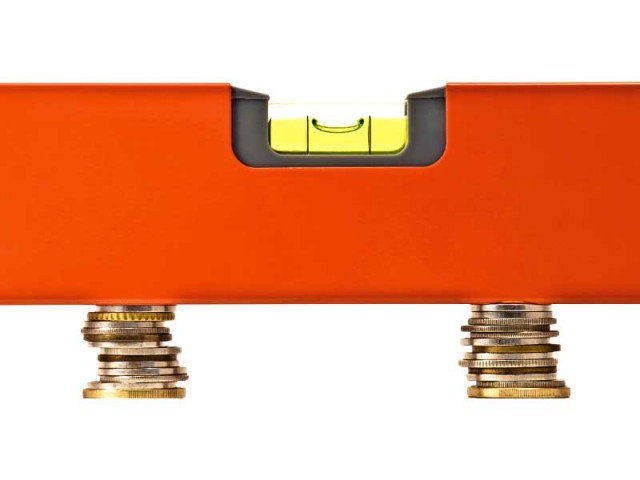Monetary policy: State Bank keeps interest rates unchanged at 9.5%
Narrows interest rate corridor to discourage borrowing by commercial banks.

The decision to hold interest rates steady came after the inflation figures for January showed a slight uptick. CREATIVE COMMONS
Confirming widespread expectations, the State Bank of Pakistan announced that it would maintain interest rates at current levels for the next two months.
At a press conference held on Friday at the central bank’s headquarters in Karachi, SBP Governor Yaseen Anwar said that the State Bank board of directors had decided to keep the benchmark discount rate unchanged at 9.5% for the following two months. The discount rate is the interest rate at which commercial banks are allowed to borrow from the central bank’s discount window.
The decision to hold interest rates steady came after the inflation figures for January showed a slight uptick. There had also been considerable concern expressed by economists as well as businesses over the steady decline in the value of the rupee over the past 18 months, a timeframe during which the State Bank has reduced interest rates by 450 basis points. (A hundred basis points equal one per cent.)

In the board-approved statement that Anwar read out, the SBP used diplomatic language, couched in macroeconomic jargon, and essentially admitted that its previous decision to lower interest rates to single digits had not succeeded in bolstering credit to the private sector.
“In the wake of rising risks to macroeconomic stability and in the absence of structural reforms that could have supported price stability and growth in medium term, it may be difficult to continue with the same monetary policy stance,” said the State Bank, admitting defeat of its previous strategy.
The statement is likely to be seen by many as a vindication of the criticism often levelled at the central bank’s decision to lower interest rates: that it had little positive impact on the economy and a significant negative one.
The State Bank’s own justification for holding rates at the current levels, however, was the expectation that inflation would rise again.
“The Consumer Price Index inflation has already risen in the past two months; from 6.9% in November 2012 to 8.1% in January 2013. The core inflation measures are also inching towards double digit figures again after coming down to single digits,” said the governor, while reading out a prepared statement.
In the question and answer session that followed, Anwar elaborated on the reasons why the State Bank expected prices to increase. “We expect administered prices to rise,” he explained. In non-economist terms, this means that the SBP expects that the government will not be able to continue subsidising energy at the levels that it has in the past four years.
But when pressed about whether or not Pakistan would be entering another bailout programme with the International Monetary Fund (IMF) – the usual stimulant behind the government’s decision to cut subsidies – the governor declined to comment, saying that he did not want to say anything publicly about ongoing discussions with the IMF.
Market impact
The State Bank’s decision was in line with analysts’ expectations, though it may not be without an impact on the bond market. Anwar also announced that the central bank had decided to reduce the interest rate corridor from 300 basis points to 250 basis points.
The interest rate corridor refers to the difference between the interest rate at which banks can borrow cash from the State Bank and the interest rate which banks can receive when they deposit surplus cash at the State Bank. The ‘ceiling’ of that corridor is equal to the discount rate (in this case, 9.5%). The ‘floor’ of the corridor was 6.5% before today’s announcement – it has now been raised to 7%.
The goal of this move is to make it less attractive for commercial banks to borrow from the State Bank in order to lend to the government.
Published in The Express Tribune, February 9th, 2013.
Like Business on Facebook to stay informed and join in the conversation.



















COMMENTS
Comments are moderated and generally will be posted if they are on-topic and not abusive.
For more information, please see our Comments FAQ